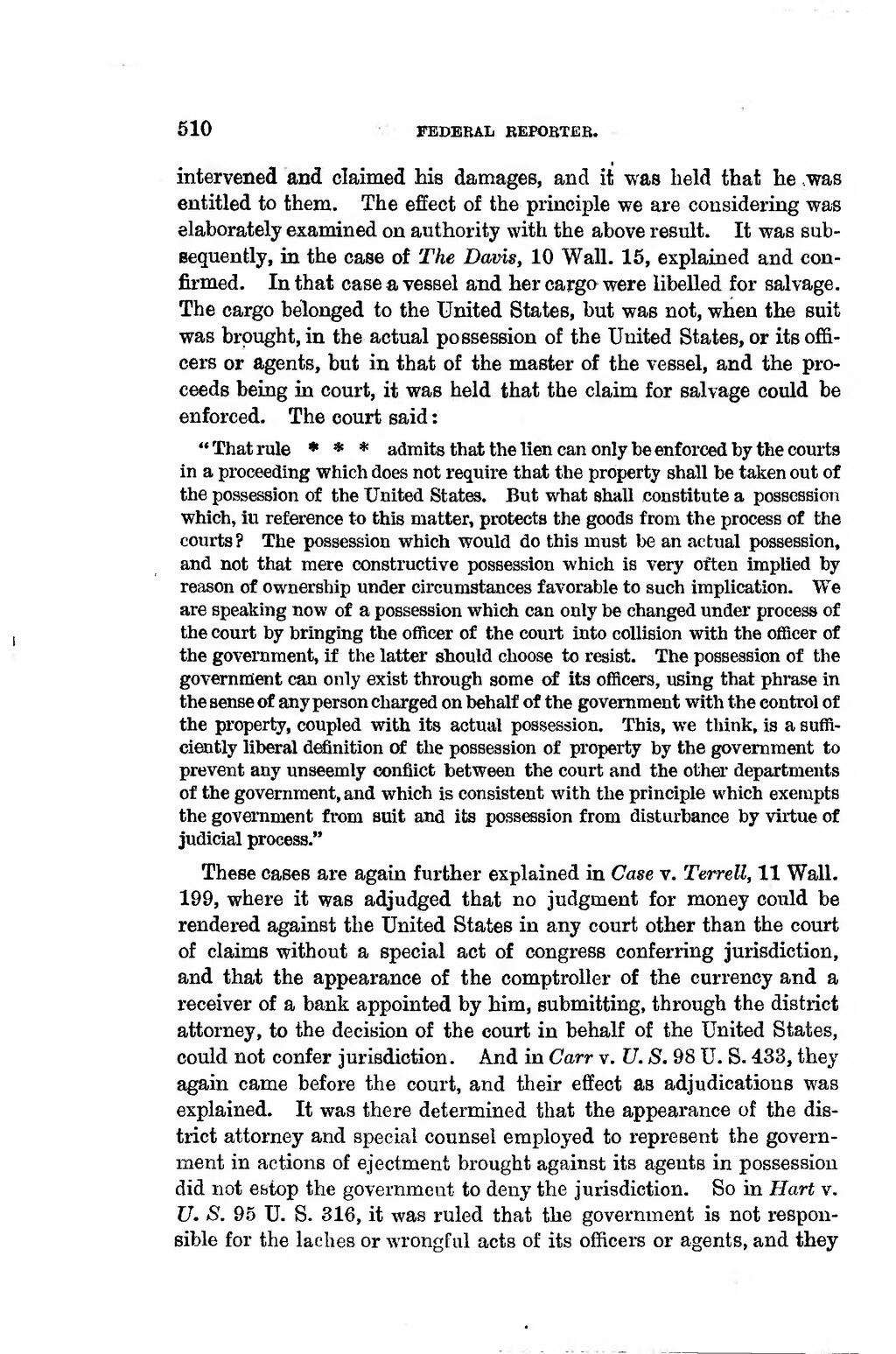510 FEDERAL REPORTER. �intervened and claimed his damages, and it was held that he was entitled to them. The effect of the principle we are considering was elaborately examined on authority with the above resuit. It was sub- sequently, in the case of The Davis, 10 Wall. 15, explained and con- firmed. In that case a vessel and her cargo were libelled for salvage. The cargo belonged to the United States, but was not, when the suit was brpught, in the actual possession of the United States, or its offi- cers or agents, but in that of the master of the vessel, and the pro- ceeds being in court, it was held that the daim for salvage could be enforced. The court said : �" ihat rule * * * admits that the lien can only be enforced by the courts in a proceeding which does not require that the property shall be talien out of the possession of the United States. But what sliall constitute a possession which, in reference to this matter, protects the goods from the process of the courts? The possession which would do this must be an actual possession, and not that mere constructive possession which is very often implied by reason of ownership under circumstances favorable to such implication. We are spealiing now of a possession which can only be changed under process of the court by bringing the offlcer of the court into collision with the officer of the government, if the latter should choose to resist. The possession of the govemfflent can only exist through some of its offlcers, using that phrase in the sense of any person chargea on behalf of the government with the control of the property, eoupled with its actual possession. This, we think, is a suffi- ciently liberal definition of the possession of property by the government to prevent any unseemly eonflict between the court and the other departments of the government, and which is consistent with the principle which exempts the government from suit and its possession from disturbance by virtue of judicial process." �These cases are again further explained in Case v. Terrell, 11 Wall. 199, where it was adjudged that no judgment for money could be rendered against the United States in any court other than the court of claims without a special act of congress conferring jurisdiction, and that the appearance of the comptroller of the currency and a receiver of a bank appointed by him, submitting, through the district attorney, to the decision of the court in behalf of the United States, could not confer jurisdiction. And in Carr v. U. S, 98 U. S. 433, they again came before the court, and their effect as adjudications was explained. It was there determined that the appearance of the dis- trict attorney and special counsel employed to represent the govern- ment in actions of ejectment brought against its agents in possession did not estop the governmeat to deny the jurisdiction. So in Ha7-t v. U. S. 95 U. S. 316, it was ruled that the government is not respon- sible for the laches or wrongful acts of its officers or agents, and they ��� �
